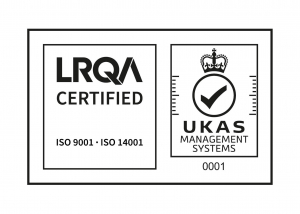AeroThermal completes 65m3 thermal hydrolysis vessel for new anaerobic digestion site
AeroThermal Ltd today (11th December 2017) announced that its 65m3 Thermo-Pressure Hydrolysis (TPH) vessel has been completed and has left its factory in Poole en route to a new bio-waste anaerobic digestion site in the Midlands.
The TPH vessel is a key component at the new facility and has been provided in partnership with Jones Celtic Bioenergy. The technology pre-treats food waste and other bio-waste organics prior to going to mesophilic anaerobic digestion.
The TPH operates in cycles of 2-2.5 hours each processing over 20 tonnes of bio-waste. The bio-waste, inclusive of packaging, is shredded to <50mm prior to transfer to the vessel. There it is sterilised firstly by being put under vacuum, then under high temperature saturated steam for 30-45 minutes while the drum rotates depending on the process requirements.
This hydrolyses the cellulosic material and after the process is complete, the product exits the vessel as a pumpable liquid. This is then separated into the predominant organic fraction which goes into anaerobic digesters producing high yields of biogas, which will be upgraded and injected into the national gas grid.
AeroThermal has demonstrated that pre-treating food and packaging waste in utilizing the TPH process before anaerobic digestion significantly increases methane generation and substantially reduces the amount of material requiring disposal.
The TPH vessel left Poole at the end of November in four sections. It will then be reassembled, with commissioning in February and hot commissioning later in the year. Christian Toll, AeroThermal’s CEO, said:
“In our in-house lab, we have conclusively proven that there are significant advantages in applying thermal hydrolysis as per the AeroThermal method to a wide range of municipal organics. This includes its flexibility in efficiently separating it from food waste, while ultimately recovering feedstock for anaerobic digesters for energy production.
“We are proud to have developed this system in partnership with Jones Celtic, and we are looking forward to our autoclave generating significant quantities of green energy from food waste.”






